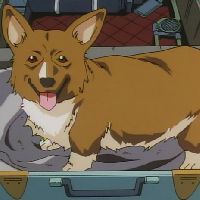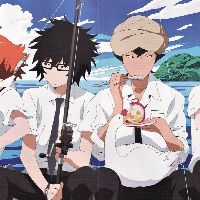
Chances are, you get your meat from a supermarket. Unless you’ve lived on or visited a farm, you probably have only a vague idea of where your food came from. Oh sure, you know that delicious steak started out as part of a cow, and that drumstick you’re chowing down on was originally some chicken’s leg - but only in a vague sort of way.
As we start to care more about the contents of our food, we’re beginning to care more and more about the treatment of these animals we’ve been taking for granted. Along with this knowledge comes a difficult question: how can you cope with knowing that something so delicious and integral to our diet comes from something that was once alive?
Many cope by becoming vegetarian and avoiding meat altogether. Some prefer to live in ignorance, and choose not to learn too much about their food.
But what about farmers themselves? How can someone raise an animal with their own hands, only to have them killed and eaten?
Silver Spoon addresses these difficult questions by presenting a cast of characters who each have their own answers. Most of the students in the anime come from farming families, and all take part in raising the animals that live on the school grounds.
When it comes time to send off their beloved pigs, cows, and chickens to the slaughterhouse, each student deals with this in his or her own way.
Respect and Dinner

For most of the students, eating the animals in their care is a part of life. For newcomer Yuugo Hachiken though, even the idea of eating an egg becomes something to overcome once he learns where eggs come from (chickens poop out eggs!?).
His true trial comes when he names a pig, knowing exactly what this pig’s eventual destiny would be. Yuugo's knowledge about and appreciation of the animals that we eat grows through his stay at the school and by the time his little pig is all grown up and ready to be slaughtered, Yuugo comes to terms with his death by making it meaningful.
Without heading too far into spoiler territory, Yuugo learns to understand that no animal or meal should be taken for granted. We might all be heading for the slaughterhouse, and the best we can do is leave behind a legacy - or at least a delicious cut of meat.
A Necessary Evil

Yuugo’s emerging respect for nature, animals, and the sacrifices that must be made so others can survive is not unique to him. Even Aki Mikage and Ichirou Komaba, who grew up on farms, show a similar respect for their animals. Both characters eat meat with a similar reverence as Yuugo, knowing the sacrifice that has to be made before meat makes its way to their plates.
For them, though, the slaughterhouse is not an unavoidable destiny, but rather a necessary evil. When the Mikage and Komaba families sell their animals for meat, they do so with a heavy heart. They appreciate their animals in life more than in death, but they know that the animals have to be sacrificed if they want to keep living as they have been.
Regardless of whether they can make peace with slaughtering their beloved animals, Aki and Ichirou have no choice but to accept this as a fact: for one animal to live, another must die.
An Efficient Cycle

And then there’s Tamako Inada, who puts an entirely different perspective on things. Unlike Komaba and Aki, Tamako comes from a large milk farm, where the individual cow is not as important as the overall output.
Tamako’s view of meat may be the closest to natural: getting meat, milk, eggs, and any other animal product is just a cycle. Humans rely on animals for these goods. Maybe the best we can do is create a humane but efficient cycle.
Vegetarian or carnivorous, we all have our ways of accepting the things we eat. Maybe the next time you thank someone for their food, you can also offer up a little thanks to the animal it came from.




